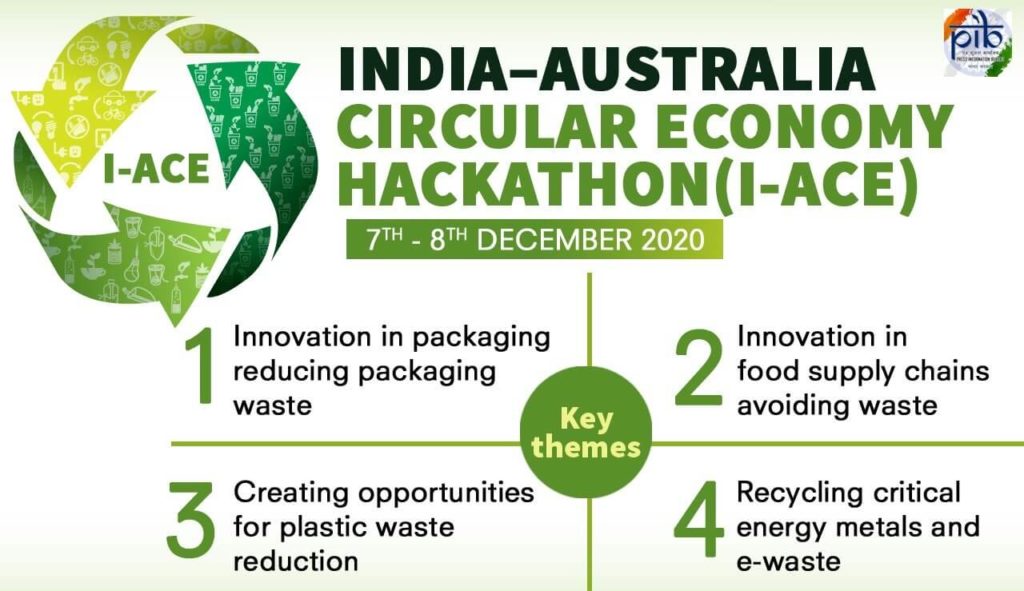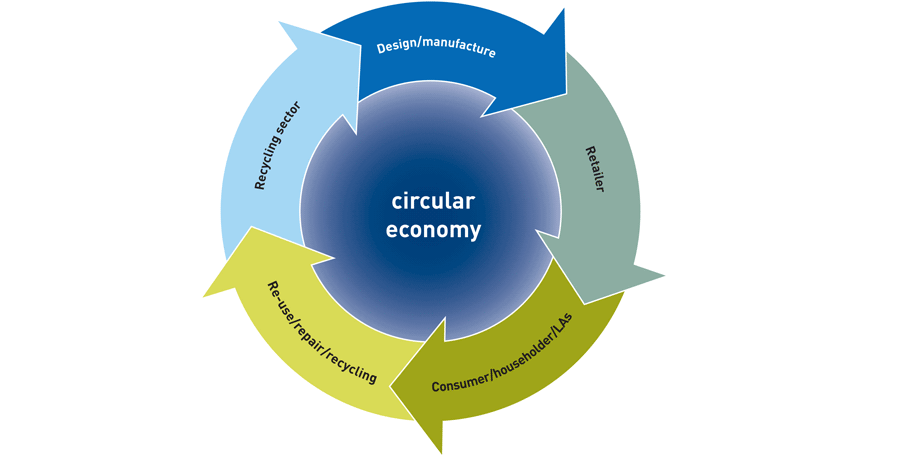AIM (Atal Innovation Mission), in association with Commonwealth Scientific and Industrial Research Organisation (CSIRO), is organizing a two-day hackathon on circular economy, ‘India–Australia Circular Economy Hackathon (I-ACE)’, on 7 and 8 December 2020.
The idea of I-ACE was conceived during a virtual summit on 4 June, between the Indian and Australian prime ministers, exploring innovative ways to boost circular economy in India and Australia. I-ACE will focus on identification and development of innovative technology solutions by bright-minded students, startups and MSMEs of both nations.
I-ACE Hackathon: Themes
The four key themes for the hackathon are as follows:
- Innovation in packaging reducing packaging waste
- Innovation in food supply chains avoiding waste
- Creating opportunities for plastic waste reduction
- Recycling critical energy metals and e-waste

I-ACE Hackathon: Prizes
The winning Indian student and startup/MSME teams will be awarded a prize of Rs 2 lakh and Rs 5 lakh, respectively, coupled with post-hackathon product development opportunities. The winning Australian student will be awarded a prize of AUD$3500 and the winning Australian SMEs/startup team a prize of AUD$9500.
The last date for application submissions is 6 November 2020. Those interested can apply via https://aimapp2.aim.gov.in/iace/.
What is Circular Economy

Our current economic model is labelled as Linear. We extract raw materials, transform, sell, use and throw them away (make, use, dispose). It is estimated that every day we consume fossil fuels equivalent of 2,600 years of accumulation of oil. Since 1950, more than six billion tonnes of plastics have ended up either in nature, burnt or in landfills. This demands shift from current approach to a more responsible approach where we keep resources in use for as long as possible, extract the maximum value from them whilst in use, then recover and regenerate products and materials at the end of each service life. This alternative approach is precisely the ambition of circular economy.
A circular economy goes beyond the pursuit of waste prevention and waste reduction to inspire technological, organisational and social innovation. At the core of Circular Economy lays a shift towards complete elimination of waste.
A circular economy is an economic system where products and services are traded in closed loops or ‘cycles’. It is regenerative by design and aims to retain as much value as possible of products, parts and materials.
Definition of Circular Economy

